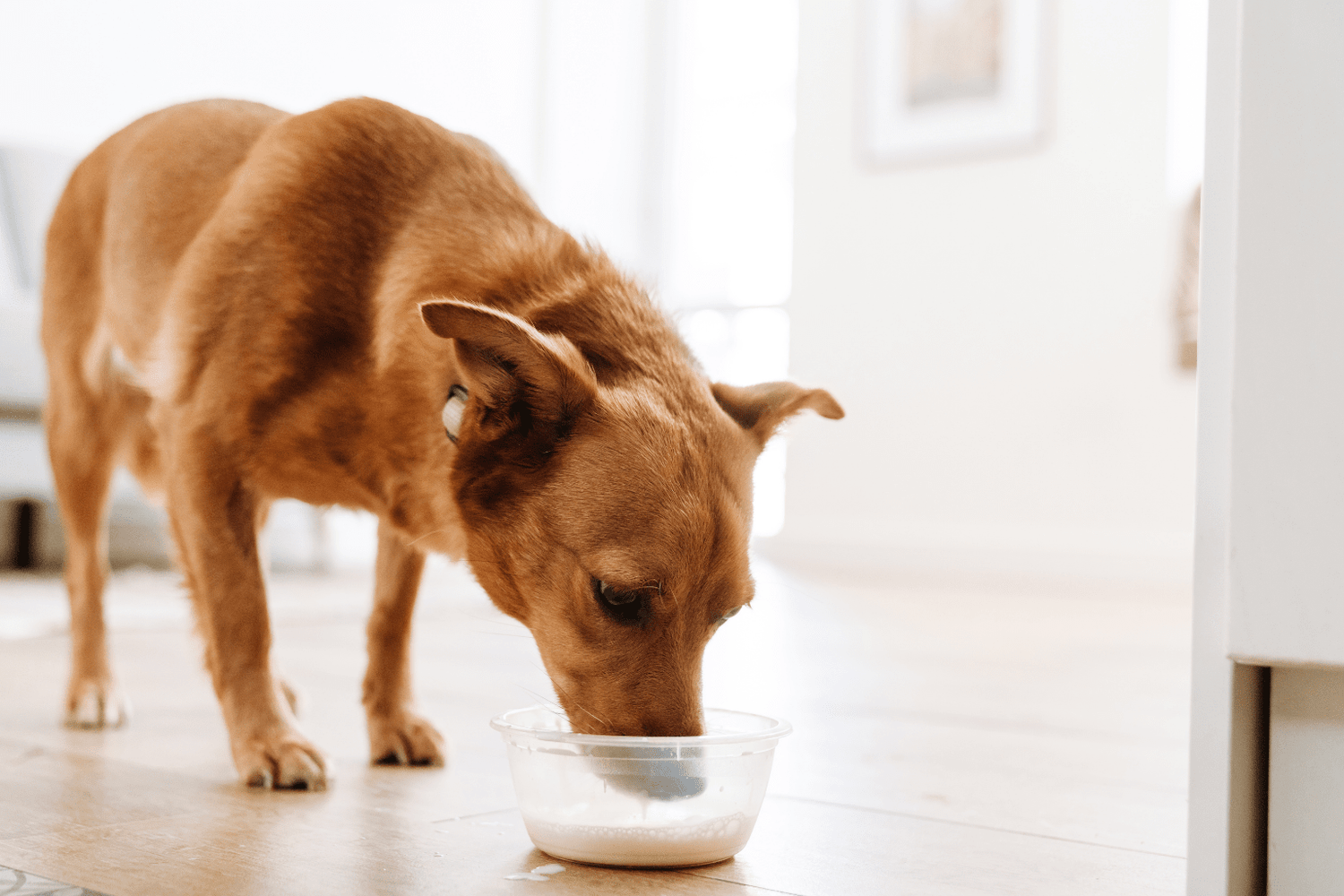Key Takeaways
- Goat's milk is gaining popularity as a natural appetite booster for dogs.
- Some dogs may refuse kibble but respond positively to goat's milk added to their meals.
- A small amount of creamy goat's milk can encourage dogs to eat eagerly again.
- Dog parents are sharing goat's milk as a helpful feeding tip within their communities.
Table of Contents
- Why Goat's Milk for Dogs is Suddenly Everywhere (and Should You Try It?)
- What is Goat's Milk, and Why Are So Many Pet Parents Switching?
- The Nutritional Benefits of Goat's Milk for Dogs, What the Science and Community Say
- Is Goat's Milk Safe for All Dogs? (Know Before You Pour)
- Goat's Milk vs. Cow's Milk and Other Pet "Milks", What Makes Goat's Milk Stand Out?
- How to Feed Goat's Milk to Your Dog, the Caregiver's No-Stress Roadmap
- Troubleshooting, What if My Dog Doesn't Tolerate Goat's Milk?
- Real-Life Success Stories, Community Tales of Hope, Relief, and Happy Tummies
- BestLife4Pets Approach, Why We Choose Homeopathy and Natural Nutrition for Our Pets
- Where to Find Quality Goat's Milk, and How to Choose the Best Option for Your Dog
- Goat's Milk Recipes, Treats, and Topper Ideas You Can Make at Home
- Final Thoughts: Nurture with Nature, One Bowl at a Time
Why Goat's Milk for Dogs is Suddenly Everywhere (and Should You Try It?)
When my Border Collie mix Tango turned his nose up at every kibble brand I tried, I was desperate. That's when a fellow dog parent at our local trail mentioned goats milk and dogs as a natural appetite booster. Within days, Tango was eagerly lapping up his meals again, all thanks to a simple splash of creamy goat's milk as a topper.
Goat's milk is exactly what it sounds like: milk from goats rather than cows. But here's what makes it special for our four-legged family members, it's naturally easier to digest, packed with gentle nutrition, and contains smaller fat molecules that sensitive stomachs can handle better than traditional dairy.
If your dog struggles with food sensitivities or digestive issues, you may also want to explore our Dog De-Wormer Broad Spectrum for additional support. For pups who experience itchy skin or allergies alongside dietary changes, consider our Dog Allergy Relief & Immune Support as a gentle complement to nutritional adjustments.
What is Goat's Milk, and Why Are So Many Pet Parents Switching?

Picture this: you're scanning social media and seeing post after post of happy dogs enjoying creamy white treats from their bowls. That's goat milk for dogs making waves in the pet parent community, and for good reason.
Goat's milk comes from domesticated goats and has been nourishing humans (and their animals) for thousands of years. What sets it apart nutritionally is its unique protein structure, specifically A2 casein instead of the A1 casein found in most cow's milk. This means gentler digestion for sensitive systems.
The nutritional fingerprint is impressive: about 85% water for natural hydration, plus easily absorbed protein, calcium for strong bones and teeth, and B vitamins that support energy balance. Think of it as nature's sports drink, but designed for your dog's specific needs.
The Nutritional Benefits of Goat's Milk for Dogs, What the Science and Community Say
The benefits of goat milk for dogs go beyond just being a tasty treat. Research shows goat's milk contains naturally occurring enzymes that may support digestive health, plus prebiotics that encourage beneficial gut bacteria growth. For dogs with mild lactose sensitivity, this can mean the difference between tummy troubles and comfortable digestion.
Real pet parents are seeing results too. Golden-Years Gary shared how his 12-year-old Lab, Murphy, started moving more easily after adding goat's milk to his routine three times weekly. The calcium and phosphorus naturally present in goat's milk support joint health, while the protein helps maintain muscle mass as dogs age.
What excites me most is how goat milk benefits for dogs extend to coat health and hydration. The vitamin A and essential fatty acids may help support a shinier coat from the inside out, while that 85% water content provides gentle hydration, especially helpful for dogs who don't drink enough water on their own.
For more information on supporting your dog's mobility and comfort as they age, you might find these hip and joint surgery after care tips for dogs and cats helpful.
Is Goat's Milk Safe for All Dogs? (Know Before You Pour)
While goats milk for dogs benefits are impressive, safety comes first. Most healthy adult dogs can enjoy pasteurized goat's milk without issues, but there are important exceptions to know.
Puppies under 12 weeks should stick to their mother's milk or vet-approved formula, goat's milk doesn't provide complete puppy nutrition. Dogs with severe dairy allergies, pancreatitis, or those on strict calorie-controlled diets need veterinary approval before trying any new foods, including goat's milk.
Start small when introducing goat's milk: offer just 1-2 teaspoons per 10 pounds of body weight, and only once during the first week. Watch for any digestive upset like loose stools, excessive gas, or skin irritation. Always choose pasteurized goat's milk over raw versions to avoid potential bacterial contamination, and refrigerate after opening, it stays fresh for about 3 days.
Goat's Milk vs. Cow's Milk and Other Pet "Milks", What Makes Goat's Milk Stand Out?

When pet parents ask is goat milk good for dogs compared to other options, the answer lies in digestibility and allergenic potential. Goat's milk contains about 40% less lactose than cow's milk, making it gentler on sensitive stomachs. The fat globules are also naturally smaller, requiring less energy to break down during digestion.
The protein structure difference is significant too. Cow's milk primarily contains A1 beta-casein, which can be harder for some dogs to process and may trigger inflammatory responses in sensitive pets. Goat's milk naturally contains A2 beta-casein, the same type found in mother's milk, making it more familiar to mammalian digestive systems.
| Feature | Goat's Milk | Cow's Milk | Plant-Based "Milks" |
|---|---|---|---|
| Lactose Content | 4.1% (naturally lower) | 4.7% (higher) | 0% (but often contains additives) |
| Protein Type | A2 casein (gentler) | A1 casein (more allergenic) | Plant proteins (incomplete for dogs) |
| Fat Globule Size | Smaller, easier to digest | Larger, requires more energy | Often contains thickeners |
| Best For Dogs | Sensitive stomachs, hydration | Occasional treats only | Not recommended |
Plant-based alternatives like almond or oat milk aren't suitable for dogs. They lack the complete amino acid profile dogs need and often contain additives, sweeteners, or thickening agents that can upset sensitive digestive systems.
To learn more about common dog health facts and myths, check out these dogs and facts from our blog.
How to Feed Goat's Milk to Your Dog, the Caregiver's No-Stress Roadmap
Starting your dog on goat milk for dogs doesn't require complicated meal planning. Begin with small amounts, 1 teaspoon per 10 pounds of body weight, offered 2-3 times during the first week. This gradual introduction helps you monitor your dog's response while their digestive system adjusts.
The easiest serving method is as a meal topper, drizzled over regular kibble or mixed into wet food. For picky eaters like Tango was, this creates an irresistible flavor boost that encourages better eating habits. You can also serve it plain in a clean stainless steel bowl, freeze it in ice cube trays for summer treats, or use it to soften dry food for senior dogs with dental issues.
For maintenance wellness, offer goat's milk 2-3 times weekly. Dogs with specific digestive needs or those recovering from illness may benefit from daily servings, but always consult your veterinarian first. Store opened goat's milk in the refrigerator and use within 3 days, never leave it out at room temperature for more than 2 hours.
Pro tip from our community: Rescue Rachel discovered that mixing a small amount of goat's milk with our gentle homeopathic pellets makes dosing multiple shelter dogs incredibly easy. The milk masks any unfamiliar texture while providing additional nutritional support.
If your dog is experiencing constipation or scooting issues, you may want to consider our Scoot Stopper & Anal Gland Support as part of their wellness routine.
Troubleshooting, What if My Dog Doesn't Tolerate Goat's Milk?
Even though goats milk and dogs typically pair well together, some pets may experience mild digestive adjustments during the first few days. Loose stools, increased gas, or slight stomach gurgling are common as your dog's system adapts to the new nutrition source.
If these symptoms occur, reduce the serving size by half and offer goat's milk every other day instead of daily. Some dogs prefer it at room temperature rather than cold from the refrigerator, let it sit for 10-15 minutes before serving. The key is patience and gradual introduction.
However, stop offering goat's milk immediately if you notice persistent vomiting, severe diarrhea lasting more than 24 hours, skin irritation, or excessive scratching. These symptoms warrant a veterinary consultation to rule out dairy allergies or other underlying sensitivities.
When goat's milk isn't the right fit, consider bone broth as an alternative meal topper, or focus on supporting your dog's digestive wellness through our gentle homeopathic remedies designed specifically for sensitive stomachs.
For additional support with your dog's skin and coat, explore our Healthy Skin & Coat + Fur Regrowth for a natural approach to wellness.
Real-Life Success Stories, Community Tales of Hope, Relief, and Happy Tummies

Golden-Years Gary's 11-year-old Labrador, Buddy, had been struggling with decreased appetite and low energy. After adding pasteurized goat's milk to Buddy's evening meals three times weekly, Gary noticed renewed enthusiasm at dinner time and more playful morning walks within just two weeks.
Feline Fiona discovered that goat milk for cats works beautifully too, her senior cat with chronic kidney issues stayed better hydrated when she offered diluted goat's milk twice weekly, as recommended by their holistic veterinarian. The extra moisture supported kidney function while providing gentle, digestible nutrition.
Rescue Rachel manages 30+ animals at her shelter and found goat's milk invaluable for stressed newcomers who arrive with poor appetites. "It's like a comfort food that helps them transition," she shares. "Combined with BestLife4Pets' calming remedies, we see remarkable improvements in both eating habits and overall settling-in behavior."
What's your goat's milk success story? We'd love to hear how this simple addition has supported your pet's wellness journey, share with our community in the comments below.
BestLife4Pets Approach, Why We Choose Homeopathy and Natural Nutrition for Our Pets
When Tango's digestive issues left him weak and uncomfortable after months of prescription medications, our homeopathic veterinarian changed everything. Those gentle pellets, never liquids, worked where harsh chemicals had failed. That's when I discovered the power of supporting the body's natural healing abilities rather than suppressing symptoms.
This "Nurture with Nature" philosophy shapes every recommendation we make. Goats milk and dogs represents the same holistic approach, using whole food nutrition to support wellness from the inside out. Our homeopathic remedies complement natural additions like goat's milk beautifully, creating a comprehensive wellness foundation that respects your pet's individual needs.
For every BestLife4Pets purchase, we give back to pet rescues and shelters because we believe every animal deserves access to gentle, effective care. Our community of pet parents worldwide shares success stories daily, proving that natural doesn't mean less effective, it means more thoughtful.
For dogs who experience anxiety or stress, especially during dietary transitions, our Pet Relax Dog Calming Anxiety Relief can help promote calm and comfort naturally.
Remember: Natural nutrition and homeopathic support are not substitutes for professional veterinary advice. Always consult your veterinarian before making significant changes to your pet's diet or wellness routine.
Where to Find Quality Goat's Milk, and How to Choose the Best Option for Your Dog
Quality goat milk for dogs starts with the label. Look for pasteurized, plain goat's milk with no added sugars, artificial flavors, or thickening agents. The ingredient list should be simple: pasteurized goat's milk, period. Avoid products containing carrageenan, xanthan gum, or any sweeteners, these additives can trigger digestive upset in sensitive dogs.
Trustworthy brands prioritize humane sourcing and batch-test their products for safety. Many are found in the refrigerated section of natural food stores, co-ops, or specialty pet retailers. Some grocery chains now carry goat's milk in their organic dairy sections, just ensure it's plain and unsweetened.
Storage matters as much as selection. Keep unopened goat's milk refrigerated and use within 3 days of opening. Never leave it at room temperature for more than 2 hours, and always check the expiration date before serving. Fresh goat's milk should smell clean and slightly sweet, any sour or off odors mean it's time to discard.
Our BestLife4Pets community frequently shops at Whole Foods, local co-ops, and farm stores where they can speak directly with suppliers about sourcing practices. Building relationships with local goat farms often provides the freshest, highest-quality options.
For more on recognizing signs of kidney and bladder problems in dogs, see our guide on signs of kidney and bladder problems in dogs.
Goat's Milk Recipes, Treats, and Topper Ideas You Can Make at Home

Creating homemade treats with goats milk for dogs adds variety to your pet's routine while providing extra nutrition. These simple recipes require minimal ingredients and store easily for weekly meal planning.
Frozen Goat Milk Pupsicles: Pour plain goat's milk into ice cube trays or silicone molds. Freeze for 4-6 hours. Serve as cooling treats on hot days or after exercise. Store frozen for up to 2 weeks. Perfect portion sizes for small to medium dogs, break larger cubes in half for toy breeds.
Digestive Support Meal Topper: Mix 2 tablespoons goat's milk with 1 tablespoon plain pumpkin puree (not pie filling). Drizzle over regular meals 2-3 times weekly. This combination supports healthy digestion while adding moisture and flavor. Refrigerate leftover mixture for up to 3 days.
Gotcha Day Celebration Bowl: Combine ¼ cup goat's milk with 2 tablespoons unsalted bone broth and a pinch of dried parsley. Serve in your dog's favorite bowl as a special occasion treat. The extra hydration and gentle nutrition make this perfect for senior dogs or those recovering from illness.
Always serve homemade treats as part of a balanced diet, not as meal replacements. These recipes work beautifully alongside our homeopathic remedies for dogs needing extra digestive or immune system support.
For a scientific overview of goat's milk composition and uses, see this Wikipedia article on goat's milk.
Final Thoughts: Nurture with Nature, One Bowl at a Time
The journey of goats milk and dogs reflects our broader commitment to gentle, effective pet care. This isn't about miracle cures, it's about supporting your dog's natural vitality through thoughtful nutrition choices that honor their individual needs.
Whether you're introducing goat's milk to support digestive wellness, boost hydration, or simply add variety to meals, remember that small, consistent steps create lasting health benefits. Combined with our homeopathic remedies and your veterinarian's guidance, natural additions like goat's milk become powerful tools in your pet's wellness toolkit.
Every bowl served with love, every gentle remedy chosen over harsh chemicals, every moment spent observing and responding to your pet's unique needs, this is how we nurture with nature, one day at a time.
Not a substitute for professional veterinary advice. Share your goat's milk success stories with our community, and explore how BestLife4Pets' natural remedies can complement your pet's nutritional journey toward optimal wellness.
For a deeper dive into the scientific research on goat's milk and its health effects, you can read this peer-reviewed article on goat's milk.
Frequently Asked Questions
What are the main nutritional benefits of goat's milk for dogs compared to cow's milk?
Goat's milk is easier for dogs to digest because it has smaller fat molecules and lower lactose levels than cow's milk. It also contains natural probiotics that support digestion and may soothe sensitive stomachs, making it a gentle nutritional boost for many dogs.
Is goat's milk safe for all dogs, including those with lactose intolerance or sensitive stomachs?
While goat's milk is generally easier to digest and lower in lactose, some dogs with lactose intolerance or very sensitive stomachs may still have trouble. It's best to introduce it gradually and watch for any signs of discomfort to ensure it suits your dog.
How should I introduce goat's milk into my dog's diet to avoid digestive issues?
Start with a small amount of goat's milk mixed into your dog's regular food and increase slowly over several days. This gentle approach helps your dog's digestive system adjust and reduces the chance of upset stomach or diarrhea.
Where can I find high-quality goat's milk suitable for feeding my dog, and how do I choose the best option?
Look for fresh, plain goat's milk from reputable local farms or trusted pet supply stores that prioritize quality and cleanliness. Choose milk without added sugars or flavorings, and consider organic or raw options if available and safe for your dog.



